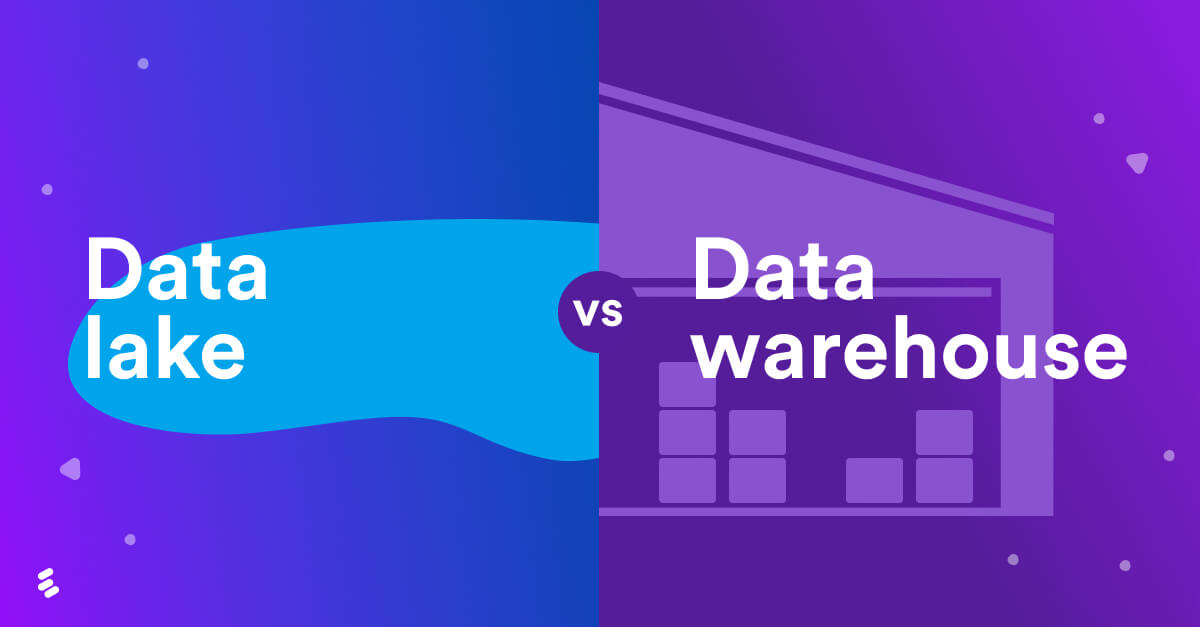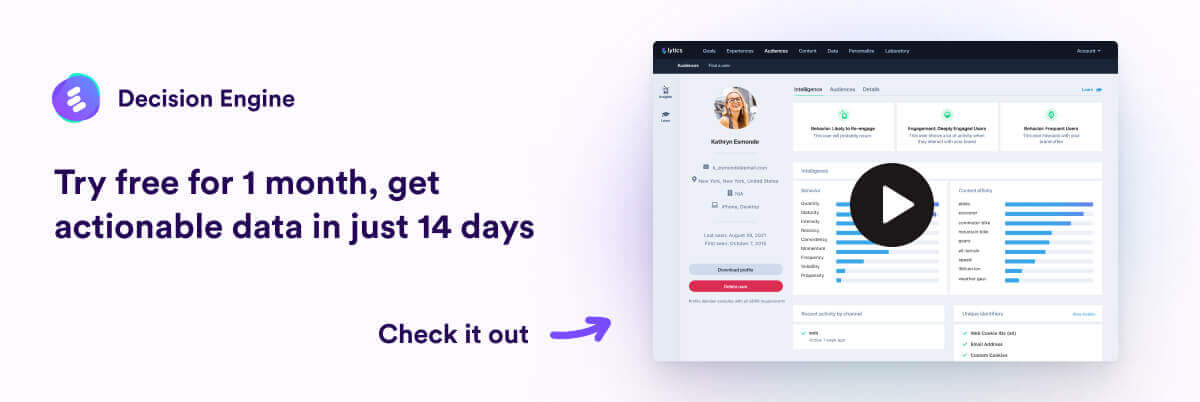Data lake vs. data warehouse: Understanding the difference
February 10, 2022

“Everybody needs data literacy, because data is everywhere,” data science expert Piyanka Jain claimed in 2021. “It’s the new currency; it’s the language of the business. We need to be able to speak that.”
It’s true: Big data is everywhere, and it’s becoming harder and harder to get by without understanding how it works and how it can be harnessed. If you’re relatively new to the world of big data, you’ve probably already come across some terms that leave you scratching your head.
That’s why, today, we’ll be unpacking the meaning of data lake vs. data warehouse. While the two terms are often used to describe the storage of big data, there are a few key distinctions between them.
What is a data lake?
Most people attribute the term data lake to James Dixon, CTO of the software platform Pentaho. In 2010, Dixon first used the term to describe a vast store of unorganized, raw data. This, he said, contrasted with a “data mart,” which described a carefully curated, processed store of data.
“If you think of a data mart as a store of bottled water—cleansed and packaged and structured for easy consumption—the data lake is a large body of water in a more natural state,” he said. “The contents of the data lake stream in from a source to fill the lake, and various lake users can come to examine, dive in, or take samples.”
In other words, a data lake is a store of data that is available to be used but hasn’t been “cleaned” or processed for commercial use.
What is a data warehouse?
A data warehouse is, on the other hand, more similar to a data mart than a data lake. A data warehouse is a large storehouse of controlled, organized, structured data. It is typically larger and less niche than a data mart.
To continue with the analogy, if a data mart is, in Dixon’s words, a store of bottled water, a data warehouse is a storehouse that contains this store of bottled water, along with other collections of other products, such as bottled soda and beer.
The key differences between a data lake vs. a data warehouse
So, both data lakes and data warehouses are stores of data. It can be difficult to determine which is which, especially in practice. Here are a few of the key differentiating factors to look out for, or questions to ask first:
1. Is the data raw or processed?
The most important difference between data lakes and data warehouses is the nature of the data itself. In a data lake, the data in storage will be entirely raw and unprocessed. This means that there will be more data, and a lot of it will likely be irrelevant to you. On the one hand, having access to all possible data is useful if you want to use the data for a myriad of purposes. However, if you know exactly what you plan on doing with the data, using a data warehouse with pre-processed data will likely save you time, money, and hassle.
2. What is the purpose of the data store?
Data warehouses usually have a distinct purpose. That’s why the data can be segmented, filtered, and processed: If you know what the exact purpose of the data is, you can get rid of irrelevant pieces of that data.
Data lakes, on the other hand, tend to have multiple purposes that don’t involve a specific organization.
3. Who tends to use the data store?
Finally, you can tell a lot about a data store by taking a look at its users. Data lakes that contain raw data pulled in from numerous sources are typically used by data scientists who are interested in analyzing unprocessed data.
Data warehouses, on the other, are usually curated for a specific business.
4. What is the format of the data?
Data lakes can be difficult to use unless you know what you’re doing because the data is stored in its original format. This means you’ll be looking at data that is a little “messy.”
With a data warehouse, data is processed into a uniform format, making it easier to decipher and analyze.
Choosing between a data lake vs. data warehouse
Unless you want to process data yourself, or you need a large store of raw data for something like machine learning or data research, data warehouses are typically preferable for business uses.
At Lytics, we operate on a data warehouse system. We collect relevant data before filtering it, merging it, and processing it into distinctive user profiles that you can use to refine your marketing campaigns. Curious to learn more about what we do? Why not discover some of our use cases or get started with a free trial?



